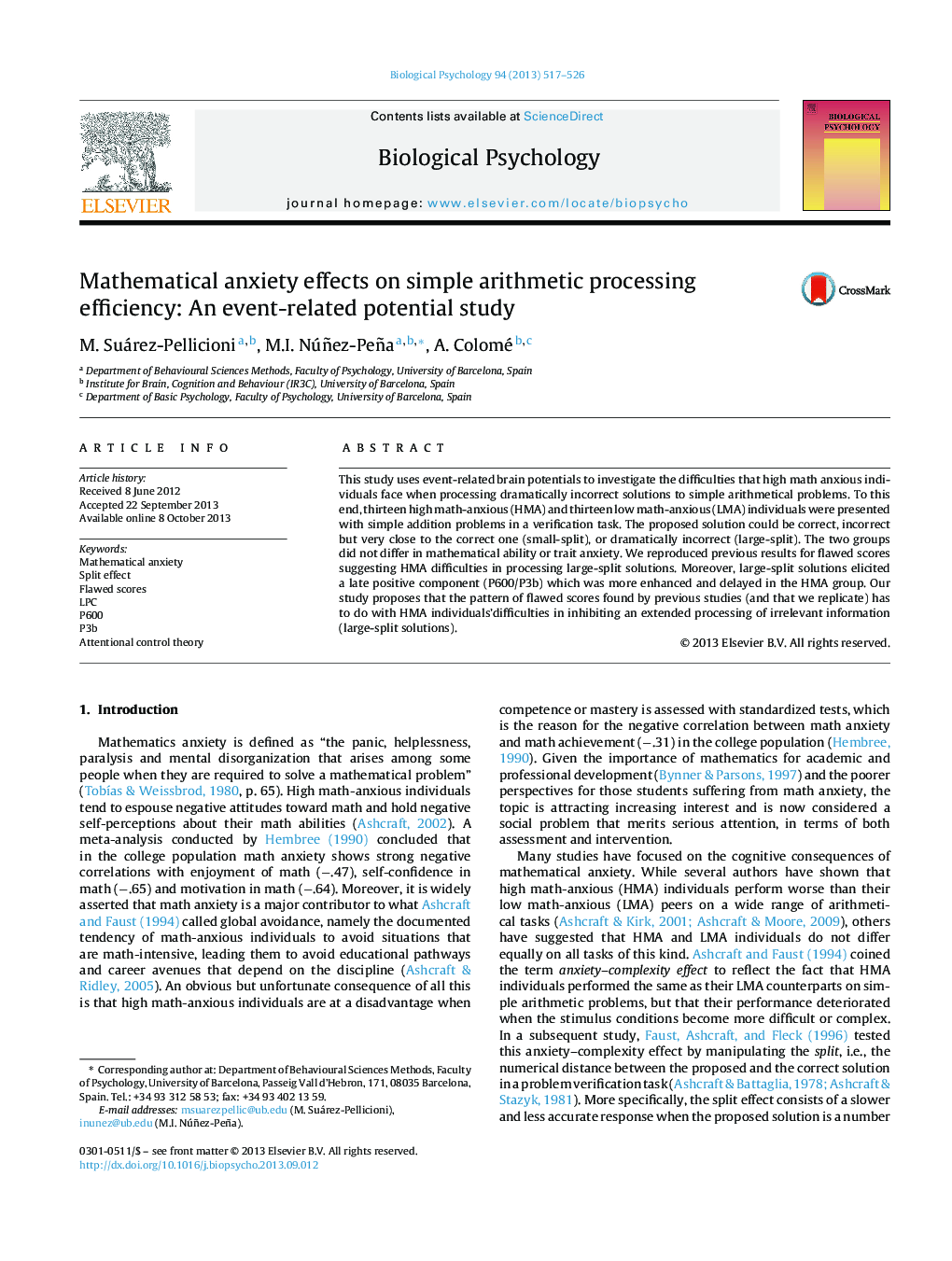| Article ID | Journal | Published Year | Pages | File Type |
|---|---|---|---|---|
| 10454187 | Biological Psychology | 2013 | 10 Pages |
Abstract
This study uses event-related brain potentials to investigate the difficulties that high math anxious individuals face when processing dramatically incorrect solutions to simple arithmetical problems. To this end, thirteen high math-anxious (HMA) and thirteen low math-anxious (LMA) individuals were presented with simple addition problems in a verification task. The proposed solution could be correct, incorrect but very close to the correct one (small-split), or dramatically incorrect (large-split). The two groups did not differ in mathematical ability or trait anxiety. We reproduced previous results for flawed scores suggesting HMA difficulties in processing large-split solutions. Moreover, large-split solutions elicited a late positive component (P600/P3b) which was more enhanced and delayed in the HMA group. Our study proposes that the pattern of flawed scores found by previous studies (and that we replicate) has to do with HMA individuals'difficulties in inhibiting an extended processing of irrelevant information (large-split solutions).
Related Topics
Life Sciences
Neuroscience
Behavioral Neuroscience
Authors
M. Suárez-Pellicioni, M.I. Núñez-Peña, A. Colomé,
